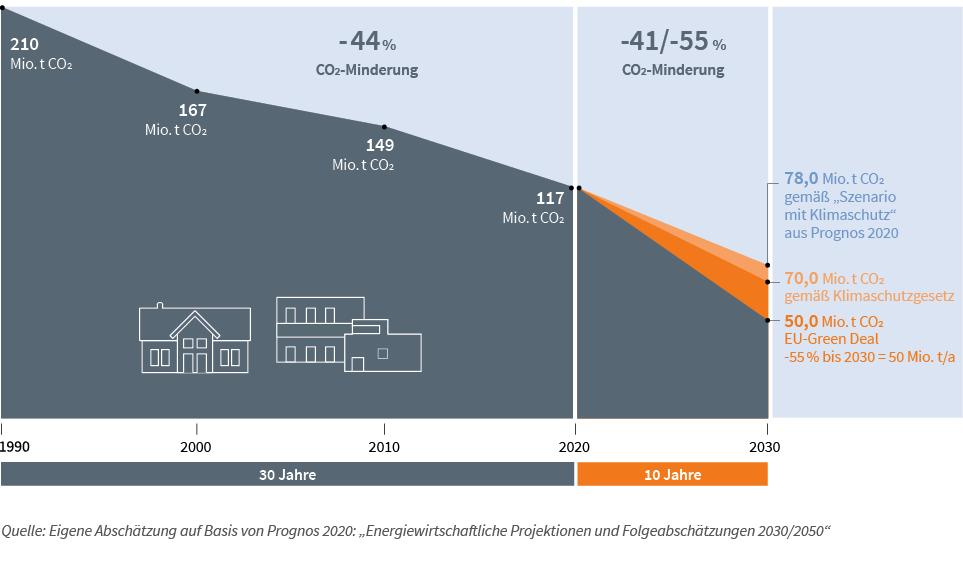Why is decarbonizing heat so important?
Our CEO Catherine Gras on why Germany needs to deal with the greenhouse gas emissions coming from housing
In 2020, the housing sector contributes to over 9% of total German greenhouse gas emissions (source BDEW), reducing emissions is going to be a challenging task.
A recent publication from BDEW shows the magnitude of what needs to be achieved to be consistent with EU Green deal objectives: -55% in less than 10 years compared to 44% achieved in 30 years.
Any policy around heating also needs to address energy poverty. A 2018 survey indicated that 2.7% of German population was unable to keep the home adequately warm and that 17.4% of households spend a high share of their income on energy expenditure (EU Energy Poverty Observatory).
What makes it so complicated to reduce GHG in the housing sector?
- There are 40 million homes in Germany and renovation rate is very low compared to other emitting sectors, around 3/4 use fossil fuel heating systems.
- Heating is provided via a wide range of installations, individual or collective, from a small gas boiler in a flat to a large district heating facility in cities.
- Renovation of heating systems or of housing to reduce consumption can quickly become a social issue. The recent discussions in Germany on who should pay the newly introduced price of CO2 between landlords and tenants is a good illustration of it.

What do we need to succeed?
- Regulatory schemes favoring a mix of low carbon solutions: electricity, geothermal energy, green gas and energy efficiency measures. No single solution can cover all needs.
- The overall energy supply system needs to be able to cover the seasonal and shorter-term variations of heating and cooling needs
- The set of measures will need to consider social issues and affordability of heating solutions
The German government has recently opened a dialogue with the various stakeholders to discuss the Wärmewende. Expect heated debates on this topic!
